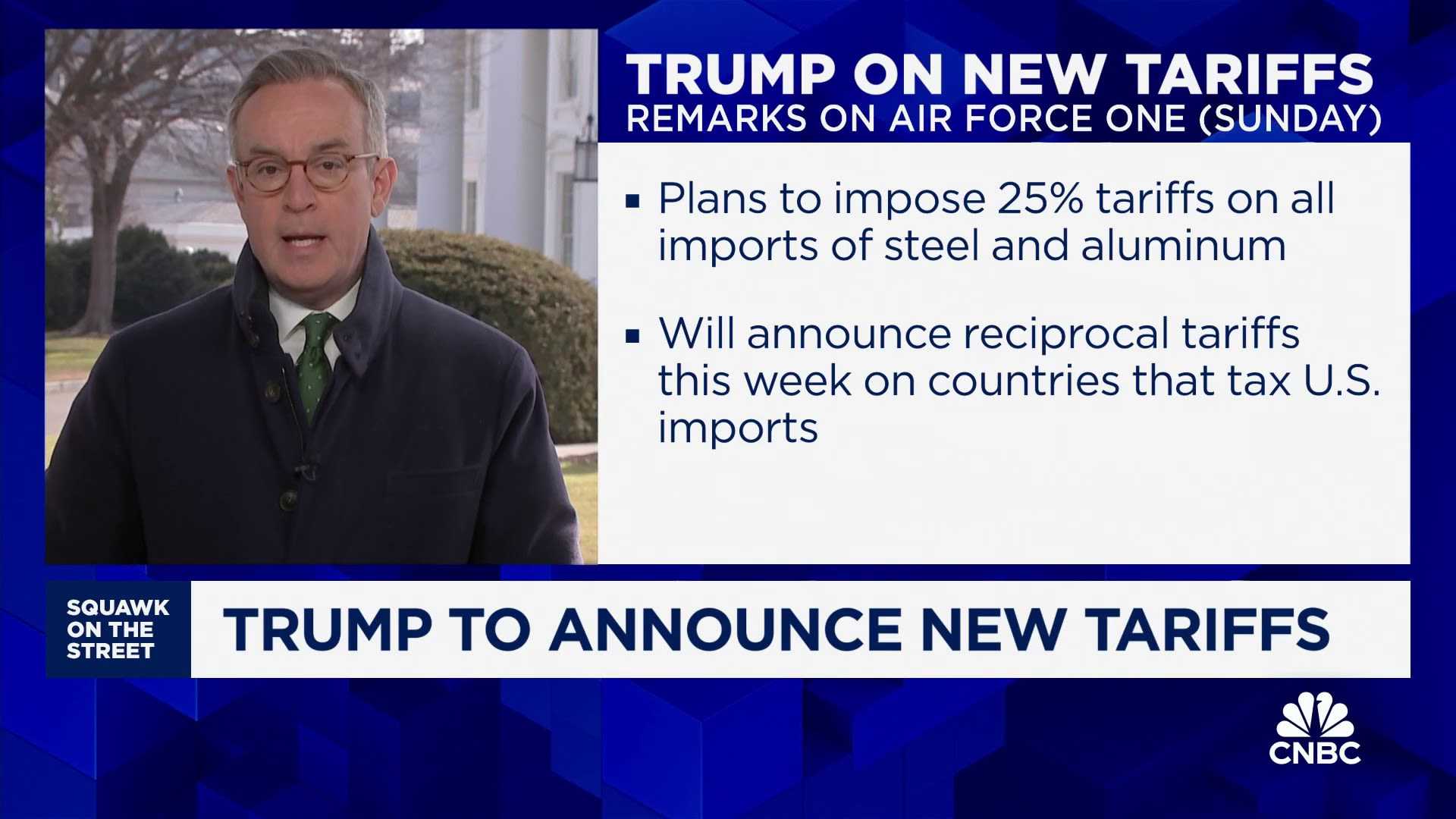Business
Trump Launches New Tariff Plan Amid Growing Trade Tensions

WASHINGTON, D.C. — President Donald Trump announced on Monday a drastic escalation in his trade policy with the introduction of a 25% tariff on all steel and aluminum imports. This move comes alongside reciprocal tariffs targeting nations that impose tariffs on U.S. goods, aiming to protect American industries and bolster the economy.
During his announcement on Air Force One, Trump stated, “And very simply, it’s, if they charge us, we charge them,” referencing the impending reciprocal tariffs set to roll out almost immediately. The new tariffs are seen as a response to economic pressures and ongoing trade disputes with major partners, including Canada, Mexico, and China.
The tariffs mark a significant departure from previous agreements where exemptions were granted to several countries, including Canada and Mexico. Trump had initially enacted a 25% tariff on steel and a 10% tariff on aluminum in 2018, which he later relaxed for some nations. With these new tariffs, he aims to ensure that American manufacturers can compete more efficiently.
“Tariffs are going to make it very successful again, and I think it has good management,” Trump remarked regarding U.S. Steel, underscoring his commitment to reviving the domestic steel industry.
The economic implications of these tariffs have raised concerns among manufacturers who rely on imported steel and aluminum for production. Experts warn that these tariffs could lead to increased prices for consumers, potentially escalating inflation rates in the U.S. Men’s footwear, electronics, and automotive parts are among the sectors expected to be impacted significantly.
Former President Joe Biden had previously established duty-free quota arrangements with the E.U., Britain, and Japan to mitigate trade tension, but it remains unclear how Trump’s new tariffs will affect these agreements. Canadian Innovation Minister Francois-Philippe Champagne criticized the U.S. decision and reaffirmed that Canada would continue to defend its industries.
In a statement, Champagne emphasized, “Canadian steel and aluminum support key industries in the U.S. from defense, shipbuilding, and auto,” insisting the country’s role as a critical supplier. This tariff announcement is particularly sensitive for Canada, the largest provider of both materials to the U.S., accounting for over 79% of primary aluminum imports.
The initiation of the new tariffs has alarmed industry observers. Chris Swonger, CEO of the Distilled Spirits Council of the United States, pointed out that American whiskey could face a dramatic increase in duties if the E.U. retaliates, saying, “A 50% tariff on America’s native spirit will have a catastrophic outcome for the 3,000 small distilleries across the United States.”
Trade relations with China remain fraught, as Beijing previously responded to U.S. tariffs with its own measures, including a 15% tariff on U.S. coal and liquefied natural gas. As Trump’s administration continues to navigate these complex international waters, it emphasizes that tariffs are a crucial tool for rebalancing trade and sustaining U.S. manufacturing interests.
In a broader context, Trump’s tariffs reflect ongoing geopolitical challenges as global markets adapt to changing trade policies, leading to fears of potential trade wars that may disrupt long-established economic partnerships.












